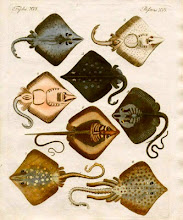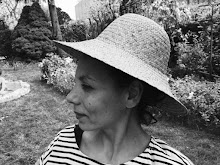by Seamus Heaney
It is December in Wicklow:
Alders dripping, birches
Inheriting the last light,
The ash tree cold to look at.
A comet that was lost
Should be visible at sunset,
Those million tons of light
Like a glimmer of haws and rose-hips,
And I sometimes see a falling star.
If I could come on meteorite!
Instead I walk through damp leaves,
Husks, the spent flukes of autumn,
Imagining a hero
On some muddy compound,
His gift like a clingstone
Whirled for the desperate.
How did I end up like this?
I often think of my friends’
Beautiful prismatic counselling
And the anvil brains of some who hate me
As I sit weighing and weighing
My responsible tristia.
For what? For the ear? For the people?
For what is said behind-backs?
Rain comes down through the alders,
Its low conducive voices
Mutter about let-downs and erosions
And yet each drop recalls
The diamond absolutes.
I am neither internee nor informer;
An inner émigré, grown long-haired
And thoughtful; a wood-kerne
Escaped from the massacre,
Taking protective colouring
From bole and bark, feeling
Every wind that blows;
Who, blowing up these sparks
For their meagre heat, have missed
The once-in-a-lifetime portent,
The comet’s pulsing rose.
Friday, July 20, 2007
A Prayer for My Daughter
by William Butler Yeats
Once more the storm is howling, and half hid
Under this cradle-hood and coverlid
My child sleeps on. There is no obstacle
But Gregory's Wood and one bare hill
Whereby the haystack and roof-levelling wind,
Bred on the Atlantic, can be stayed;
And for an hour I have walked and prayed
Because of the great gloom that is in my mind.
I have walked and prayed for this young child an hour,
And heard the sea-wind scream upon the tower,
And under the arches of the bridge, and scream
In the elms above the flooded stream;
Imagining in excited reverie
That the future years had come
Dancing to a frenzied drum
Out of the murderous innocence of the sea.
May she be granted beauty, and yet not
Beauty to make a stranger's eye distraught,
Or hers before a looking-glass; for such,
Being made beautiful overmuch,
Consider beauty a sufficient end,
Lose natural kindness, and maybe
The heart-revealing intimacy
That chooses right, and never find a friend.
Helen, being chosen, found life flat and dull,
And later had much trouble from a fool;
While that great Queen that rose out of the spray,
Being fatherless, could have her way,
Yet chose a bandy-leggèd smith for man.
It's certain that fine women eat
A crazy salad with their meat
Whereby the Horn of Plenty is undone.
In courtesy I'd have her chiefly learned;
Hearts are not had as a gift, but hearts are earned
By those that are not entirely beautiful.
Yet many, that have played the fool
For beauty's very self, has charm made wise;
And many a poor man that has roved,
Loved and thought himself beloved,
From a glad kindness cannot take his eyes.
May she become a flourishing hidden tree,
That all her thoughts may like the linnet be,
And have no business but dispensing round
Their magnanimities of sound;
Nor but in merriment begin a chase,
Nor but in merriment a quarrel.
Oh, may she live like some green laurel
Rooted in one dear perpetual place.
My mind, because the minds that I have loved,
The sort of beauty that I have approved,
Prosper but little, has dried up of late,
Yet knows that to be choked with hate
May well be of all evil chances chief.
If there's no hatred in a mind
Assault and battery of the wind
Can never tear the linnet from the leaf.
An intellectual hatred is the worst,
So let her think opinions are accursed.
Have I not seen the loveliest woman born
Out of the mouth of Plenty's horn,
Because of her opinionated mind
Barter that horn and every good
By quiet natures understood
For an old bellows full of angry wind?
Considering that, all hatred driven hence,
The soul recovers radical innocence
And learns at last that it is self-delighting,
Self-appeasing, self-affrighting,
And that its own sweet will is heaven's will,
She can, though every face should scowl
And every windy quarter howl
Or every bellows burst, be happy still.
And may her bridegroom bring her to a house
Where all's accustomed, ceremonious;
For arrogance and hatred are the wares
Peddled in the thoroughfares.
How but in custom and in ceremony
Are innocence and beauty born?
Ceremony's a name for the rich horn,
And custom for the spreading laurel tree.
Once more the storm is howling, and half hid
Under this cradle-hood and coverlid
My child sleeps on. There is no obstacle
But Gregory's Wood and one bare hill
Whereby the haystack and roof-levelling wind,
Bred on the Atlantic, can be stayed;
And for an hour I have walked and prayed
Because of the great gloom that is in my mind.
I have walked and prayed for this young child an hour,
And heard the sea-wind scream upon the tower,
And under the arches of the bridge, and scream
In the elms above the flooded stream;
Imagining in excited reverie
That the future years had come
Dancing to a frenzied drum
Out of the murderous innocence of the sea.
May she be granted beauty, and yet not
Beauty to make a stranger's eye distraught,
Or hers before a looking-glass; for such,
Being made beautiful overmuch,
Consider beauty a sufficient end,
Lose natural kindness, and maybe
The heart-revealing intimacy
That chooses right, and never find a friend.
Helen, being chosen, found life flat and dull,
And later had much trouble from a fool;
While that great Queen that rose out of the spray,
Being fatherless, could have her way,
Yet chose a bandy-leggèd smith for man.
It's certain that fine women eat
A crazy salad with their meat
Whereby the Horn of Plenty is undone.
In courtesy I'd have her chiefly learned;
Hearts are not had as a gift, but hearts are earned
By those that are not entirely beautiful.
Yet many, that have played the fool
For beauty's very self, has charm made wise;
And many a poor man that has roved,
Loved and thought himself beloved,
From a glad kindness cannot take his eyes.
May she become a flourishing hidden tree,
That all her thoughts may like the linnet be,
And have no business but dispensing round
Their magnanimities of sound;
Nor but in merriment begin a chase,
Nor but in merriment a quarrel.
Oh, may she live like some green laurel
Rooted in one dear perpetual place.
My mind, because the minds that I have loved,
The sort of beauty that I have approved,
Prosper but little, has dried up of late,
Yet knows that to be choked with hate
May well be of all evil chances chief.
If there's no hatred in a mind
Assault and battery of the wind
Can never tear the linnet from the leaf.
An intellectual hatred is the worst,
So let her think opinions are accursed.
Have I not seen the loveliest woman born
Out of the mouth of Plenty's horn,
Because of her opinionated mind
Barter that horn and every good
By quiet natures understood
For an old bellows full of angry wind?
Considering that, all hatred driven hence,
The soul recovers radical innocence
And learns at last that it is self-delighting,
Self-appeasing, self-affrighting,
And that its own sweet will is heaven's will,
She can, though every face should scowl
And every windy quarter howl
Or every bellows burst, be happy still.
And may her bridegroom bring her to a house
Where all's accustomed, ceremonious;
For arrogance and hatred are the wares
Peddled in the thoroughfares.
How but in custom and in ceremony
Are innocence and beauty born?
Ceremony's a name for the rich horn,
And custom for the spreading laurel tree.
Subscribe to:
Posts (Atom)




